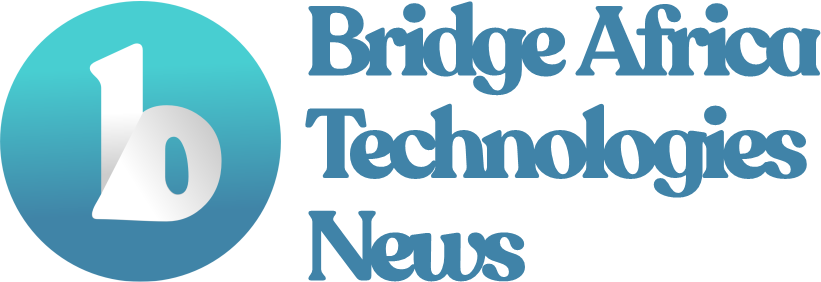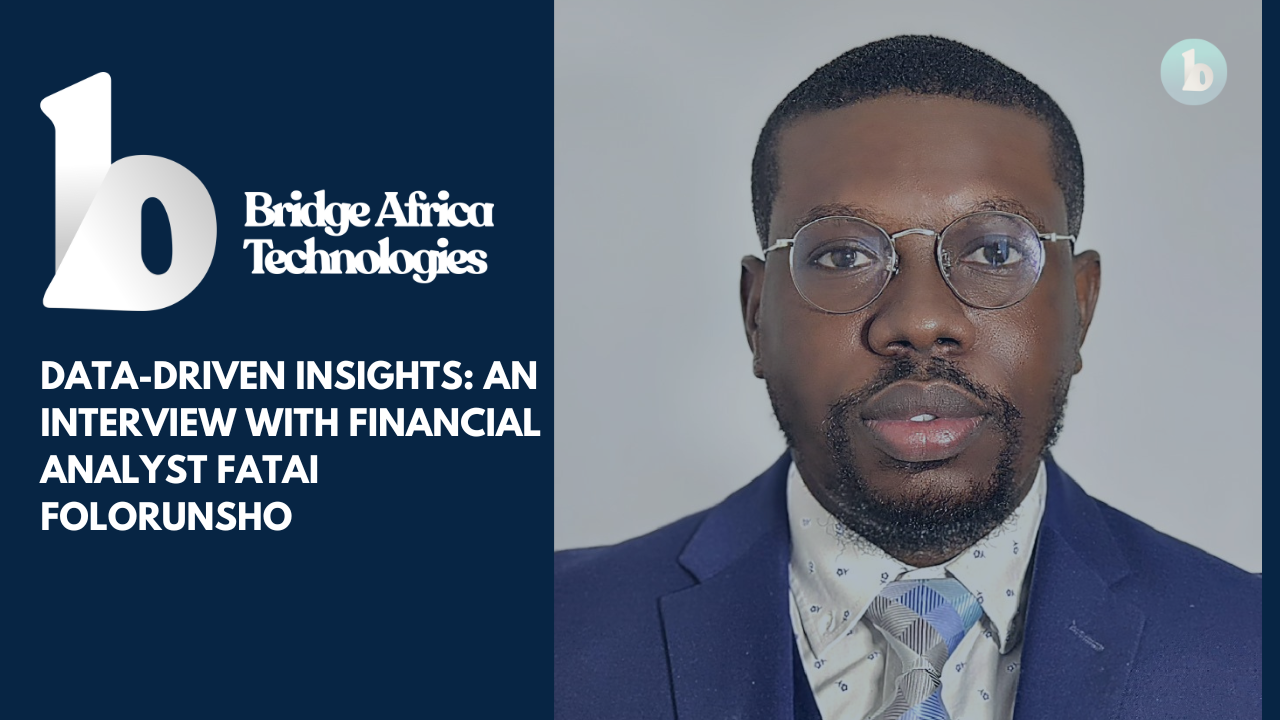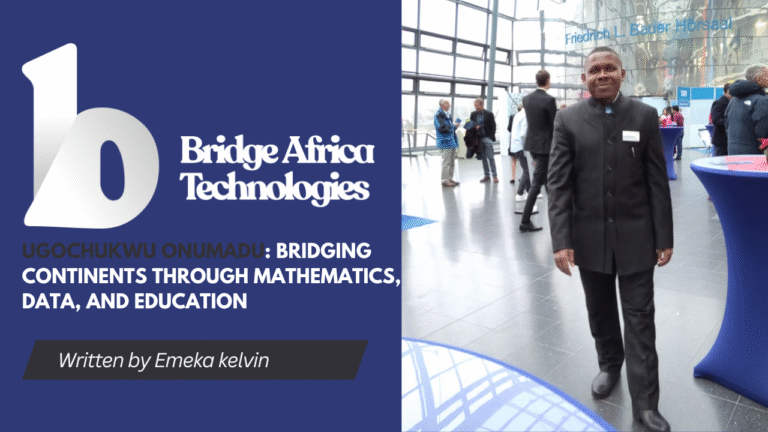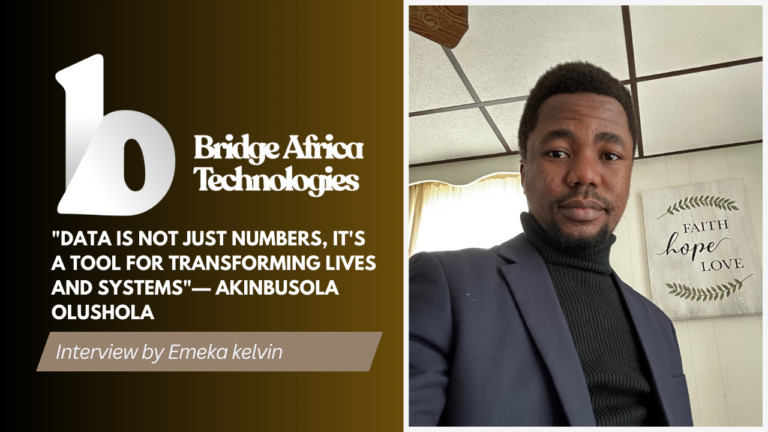Meet Fatai Folorunsho; a distinguished Financial, Quantitative, and Fraud Analyst with over five years of comprehensive experience. He specializes in integrating risk management into research, statistical analysis, and modeling to provide data-driven insights that influence corporate strategies and enhance security. His SQL, Python, and R proficiency enables him to create actionable algorithms, detailed reports, and dynamic dashboards that drive strategy and manage risk. Folorunsho excels at identifying patterns in complex datasets and transforming them into persuasive presentations for informed decision-making.
He holds an M.S. in Computer Science and Quantitative Methods with a specialization in Mathematical Finance from Austin Peay State University, where he achieved a GPA of 3.9/4.0. His educational foundation is further strengthened by a Bachelor of Technology in Industrial Mathematics from the Federal University of Technology in Ondo, Nigeria, with a GPA of 3.29/4.0.
Folorunsho’s professional journey includes significant roles such as a Corporate Quality Reliability Analyst Intern at Cummins Inc., where he standardized product reliability processes and enhanced the efficiency of Failure Incidents Review Group dashboards by transitioning from Excel-based macros to Power BI. As a Graduate Teaching and Research Assistant at Austin Peay State University, he improved students’ statistical assessment scores and fostered engagement in Python programming concepts. At Access Bank Plc. in Nigeria, he served as an ATM Reconciliation Analyst and Business Analyst, where he streamlined reconciliation processes, significantly improved operational efficiency, and employed statistical modeling to optimize customer retention strategies. Additionally, his expertise extends to fraud detection and prevention, enhancing his value in ensuring secure business operations.
His academic projects and research efforts include developing a decision tree model for predicting customer interest, applying logistic regression for subscription prediction in financial services, and conducting portfolio optimization with risk and return analysis. He has also published papers on forecasting the economic impacts of technological disruptions and optimizing government grants for startups, demonstrating his ability to produce actionable insights through meticulous research and analysis.
With a blend of technical acumen, analytical prowess, and effective communication skills, Fatai Folorunsho is a valuable asset in the fields of financial analysis and data science. His dedication, attention to detail, and ability to provide actionable insights make him instrumental in driving smart, secure business decisions, fostering sustainable economic growth, and enhancing operational efficiencies.
Thus, in this interview with Bridge Africa Technologies a platform known to celebrate the achievements and impact of Nigerian professionals on a global scale. Here, we explored Folorunsho contribution in the world of financial analysis and data science as well as how his journey from Nigeria to the United States has impacted him.
Q1. Can you tell us about Fatai Folorunsho‘s journey into the field of financial and quantitative analysis?
Answer: My journey into financial and quantitative analysis began with my undergraduate studies in Industrial Mathematics at the Federal University of Technology in Ondo, Nigeria. The rigorous curriculum provided a solid foundation in quantitative analysis. I further honed my skills by pursuing an M.S. in Computer Science and Quantitative Methods with a specialization in Mathematical Finance from Austin Peay State University. My academic background, combined with practical experiences in various analyst roles, allowed me to integrate risk management and statistical analysis into corporate strategies effectively.
Q2. What inspired you to specialize in risk management and data analysis?
Answer: My inspiration to specialize in risk management and data analysis stems from a passion for problem-solving and a keen interest in how data can drive decision-making. During my early career, I realized the profound impact that accurate data analysis and risk management could have on a company’s success. This realization motivated me to develop expertise in these areas to provide actionable insights that mitigate risks and enhance operational efficiencies.
Q3. How has your educational background prepared you for your career?
Answer: My educational background has been instrumental in preparing me for my career. My Bachelor of Technology in Industrial Mathematics provided a strong foundation in quantitative analysis. The M.S. in Computer Science and Quantitative Methods at Austin Peay State University further developed my skills, particularly in mathematical finance, which is crucial for financial analysis and risk management. The combination of theoretical knowledge and practical projects during my studies equipped me with the tools necessary to excel in my professional roles.
Q4. Could you elaborate on your role as a Corporate Quality Reliability Analyst Intern at Cummins Inc.?
Answer: As a Corporate Quality Reliability Analyst Intern at Cummins Inc., I standardized product reliability processes by collaborating with stakeholders and analyzing Voice of Customer data. This initiative significantly reduced training time for new engineers. Additionally, I conducted organization-wide training sessions for the Integrated Design Failure Mode Effect Analysis (iDFMEA) process, achieving 100% adoption. By replacing Excel-based macros with Power BI, I improved the efficiency of the Failure Incidents Review Group Measures Dashboards, streamlining operations.
Q5. What were some key achievements during your tenure at Access Bank Plc.?
Answer: At Access Bank Plc., I made significant contributions as an ATM Reconciliation Analyst and Business Analyst. I streamlined ATM reconciliation processes, leading to a 20% improvement in operational efficiency. My data analysis techniques ensured swift settlement of transactional disputes, reducing resolution times across multiple branches. Additionally, as a Business Analyst, I used statistical modeling to optimize customer retention strategies and improved transaction turnaround time by 80% through a user categorization and alert trigger system.
Q6. How did you improve student engagement and performance as a Graduate Teaching and Research Assistant?
Answer: As a Graduate Teaching and Research Assistant at Austin Peay State University, I improved student engagement and performance by fostering a collaborative learning environment. I provided tutoring in regression models and hypothesis testing, which led to a 10% increase in students’ average assessment scores. Additionally, my efforts to encourage analytical skills and the ability to work with large datasets resulted in a 20% increase in student engagement with Python programming concepts.
Q7. Can you discuss a challenging project you have worked on and how you overcame the challenges?
Answer: One challenging project was the “Hedging Against Future Crude Oil Price with Options Strategy for Airjet Airways.” It involved conducting data analysis on historical crude oil spot prices and simulating future prices. Solving the Black-Scholes Partial Differential Option Pricing Model using various numerical approaches required precise calculations and deep understanding. I overcame the challenges by meticulously analyzing data, employing the Finite Difference Numerical Approach, and making well-informed recommendations for hedging against future price fluctuations.
Q8. What key skills do you believe are essential for success in financial and quantitative analysis?
Answer: Essential skills for success in financial and quantitative analysis include proficiency in data analysis tools such as SQL, Python, and R, strong statistical modeling capabilities, and the ability to create dynamic dashboards for visualizing data. Additionally, soft skills like adaptability, effective communication, problem-solving, and teamwork are crucial. These skills enable analysts to interpret complex datasets, provide actionable insights, and communicate findings effectively to stakeholders.
READ ALSO: How to Register Your Nigerian Company in the US and UK
Q9. How do you stay updated with the latest trends and advancements in your field?
Answer: I stay updated with the latest trends and advancements by regularly participating in professional development opportunities, such as obtaining certifications and attending industry conferences. I also keep abreast of current research and publications in financial and quantitative analysis, and actively engage with professional networks on platforms like LinkedIn. Continuous learning and staying informed about technological advancements ensure that I remain at the forefront of my field.
Q10. Can you share some insights from your published research on economic impacts and government grants for startups?
Answer: My research on forecasting economic impacts focuses on how technological disruptions can influence economic growth. Using quantitative data and mathematical models, I analyzed the potential outcomes and proposed strategies to manage these disruptions for sustainable growth. In my study on optimizing government grants for startups, I explored the relationship between grant programs and the growth of technology startups. The findings highlight the importance of well-structured grant programs in fostering innovation and overcoming challenges faced by startups.
Q11. How have your technical skills in SQL, Python, and R contributed to your success as an analyst?
Answer: My technical skills in SQL, Python, and R have been fundamental to my success as an analyst. These skills enable me to efficiently manage and analyze large datasets, develop statistical models, and create visualizations that support decision-making processes. For instance, using Python and R, I have developed predictive models and algorithms that provide valuable insights for risk management and strategic planning. Proficiency in these languages allows me to deliver precise and actionable data-driven recommendations.
Q12. What strategies do you employ to ensure the accuracy and reliability of your data analysis?
Answer: To ensure the accuracy and reliability of my data analysis, I employ several strategies. These include thorough data cleaning and preprocessing, using robust statistical techniques, and validating models through cross-validation and other testing methods. I also collaborate with stakeholders to understand the context and requirements, ensuring that the analysis aligns with business objectives. Regularly updating my knowledge and skills in data analysis tools and methodologies also plays a crucial role in maintaining high standards of accuracy and reliability.
Q13. What advice would you give to young Nigerians aspiring to pursue a career in financial and quantitative analysis?
Answer: My advice to young Nigerians aspiring to pursue a career in financial and quantitative analysis is to focus on building a strong foundation in mathematics and statistics. Invest time in learning key programming languages like SQL, Python, and R, as they are essential tools in this field. Seek out practical experiences through internships and projects, and never stop learning. Stay curious, be proactive in seeking opportunities to apply your skills, and engage with professional networks. Persistence and continuous improvement are key to success in this dynamic and rewarding field.
In Conclusion, Fatai Folorunsho’s journey from a student in Nigeria to a seasoned Financial, Quantitative, and Fraud Analyst in the United States is a story of perseverance, dedication, and excellence. His path has been marked by rigorous academic training and diverse professional experiences that have equipped him with the skills to excel in the highly competitive field of financial analysis and risk management.
Folorunsho’s educational achievements, including an M.S. in Computer Science and Quantitative Methods with a specialization in Mathematical Finance and a Bachelor of Technology in Industrial Mathematics, underscore the importance of a strong academic foundation. His ability to translate complex data into actionable business insights through proficiency in SQL, Python, and R has been a key driver of his success. Whether standardizing product reliability processes at Cummins Inc. or optimizing customer retention strategies at Access Bank Plc., his contributions have consistently led to significant improvements in efficiency and effectiveness.
Moreover, his role as a Graduate Teaching and Research Assistant showcased his commitment to fostering the next generation of analysts, improving student performance and engagement through collaborative learning environments. His research and publications further demonstrate his ability to apply quantitative methods to real-world problems, providing valuable insights into economic impacts and the optimization of government grants for startups.
Folorunsho’s journey serves as a powerful motivator for young Nigerians aspiring to careers in financial and quantitative analysis. It highlights several key takeaways:
1. Education is Key: A solid educational background in relevant fields such as mathematics, statistics, and computer science is crucial. Pursuing higher education and specialized training can open doors to advanced career opportunities.
2. Continuous Learning: Staying updated with the latest trends and technologies in the field is essential. This involves obtaining certifications, attending industry conferences, and engaging with professional networks.
3. Practical Experience: Gaining hands-on experience through internships, projects, and roles in diverse settings helps in applying theoretical knowledge to real-world scenarios, thereby enhancing skills and employability.
4. Technical Proficiency: Mastering key analytical tools and programming languages such as SQL, Python, and R is indispensable. These skills enable analysts to manage and interpret large datasets, develop predictive models, and provide actionable insights.
5. Soft Skills Matter: Effective communication, problem-solving, adaptability, and teamwork are just as important as technical skills. These abilities ensure that analysts can work collaboratively with stakeholders and convey complex information clearly.
6. Resilience and Determination: Overcoming challenges and staying committed to one’s goals are vital. Folorunsho’s journey is a testament to the power of resilience and determination in achieving professional success.
Fatai Folorunsho’s story is not just one of personal achievement but also a beacon of hope and inspiration. It encourages young Nigerians to pursue their dreams with passion and dedication, leveraging their unique skills and talents to make meaningful contributions in their fields. His journey exemplifies how a combination of education, practical experience, technical proficiency, and soft skills can lead to a fulfilling and impactful career.




